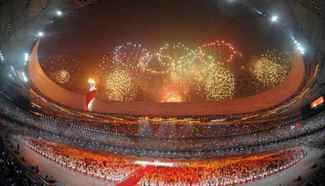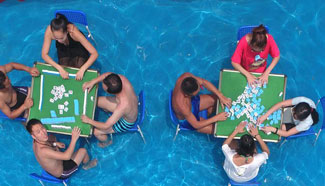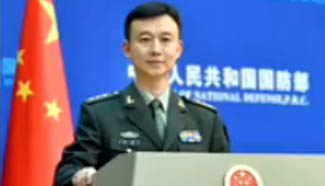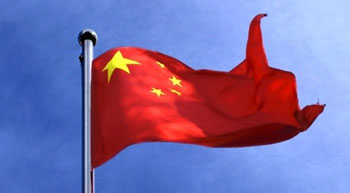MEXICO CITY, Aug. 3 (Xinhua) -- Accompanied by the oath and the creed, the Olympic motto was introduced by Frenchman Baron Pierre de Coubertin, the founder of the modern Olympic Games, who borrowed a Latin phrase from his friend and fellow Frenchman, Father Henri Didon.
Didon first used the phrase in the opening ceremony of a school sports event in 1881 at the Colegio Arcuelli, where he was director.
The Olympic motto: "Citius, altius, fortius," a phrase in Latin that means "Faster, Higher, Stronger," was first included in an Olympic Games in 1924 in Paris and it is now Olympic property.
The Olympic oath was written by Baron de Coubertin and says the following: "In the name of all the competitors I promise that we shall take part in these Olympic Games, respecting and abiding by the rules which govern them, in the true spirit of sportsmanship, for the glory of sport and the honour of our teams."
The oath was first sworn by Belgian fencer Victor Boin at the 1920 Games in Antwerp.
The oath is sworn during the Olympic Opening Ceremony by an athlete from the host country while holding a corner of the Olympic Flag.
The current oath was updated in 1999 to include the phrase "...committing ourselves to sport without doping and without drugs," and was sworn for the first time in Sydney 2000.
The Olympic creed, currently says the following: "The important thing in life is not the triumph, but the fight; the essential thing is not to have won, but to have fought well."
Over the years many changes have been made to this message but these words are the ones that now appear during every Olympic Opening Ceremony.
Baron de Coubertin adopted this phrase and later cited this creed during a reception given by the British government in 1908 after having heard something similar previously spoken by the Bishop of Pennsylvania, Ethelbert Talbot.










